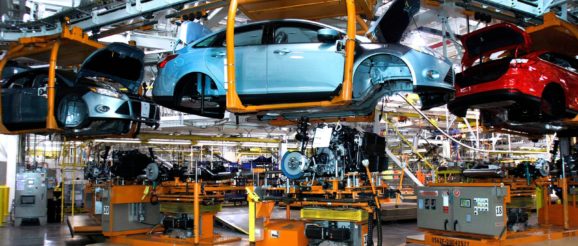EVs Are Coming For Your Job Just Like Every Other Innovation That Came For Your Job

Cars are complicated. They have many moving parts that are difficult to make at massive scale. For generations, car companies and their suppliers have employed hundreds of thousands if not millions of people to build the complicated cars.
As it happens, those complicated cars we’ve been building for generations have been very bad for the planet; vehicles are one of the main sources of CO2 emissions in the United States. So, companies are transitioning to electric cars, which are less bad for the planet. But those cars are also far simpler with many fewer parts.
Of course, such a transition will have consequences. One of them is that electric cars are much simpler and have fewer parts, meaning they’re easier to build. This, in turn, could result in fewer jobs building the simpler cars, particular in the United States, according to a Detroit News report:
Think about it: Fully electric cars don’t have multi-speed transmissions, radiators, fuel injectors, gas tanks, valvetrains or exhaust systems, to name just a few differences. While conventional drivetrains have as many as 2,000 parts, electric drivetrains can have fewer than 20.
At the most basic level, it’s an electric motor and a big battery. And those could easily be imported rather than built by an automaker or U.S. supplier.
Particularly subject to this dynamic will be the powertrains. By way of example, the article mentions that the Bolt had 80 percent fewer moving parts than a similar car with a gas engine, and that Tesla claims its drivetrain has “fewer than 20″ moving parts.
What the article doesn’t mention is how EVs will not only affect the manufacturing industry, but the maintenance field, too. We don’t have a ton of great evidence yet, but theoretically these fewer moving parts and simpler structures should result in significantly fewer trips to the garage, to say nothing of the oil changes you’ll no longer need.
In any event, this article fits squarely within a classic genre of labor reporting: how innovation will result in joblessness. It’s a concern that dates back to the printing press, and one that has generally not come to fruition.
This isn’t to say some people who work in auto manufacturing are in for a tough time, but that other employment opportunities may arise, perhaps even within the automotive field, that will create new opportunities.
Perhaps they’ll be fixing onboard computers or charging stations instead of internal combustion engines. Or maybe this time is different and everyone is profoundly screwed in ways we cannot possibly fathom. Either way, we’ll find out soon enough.
